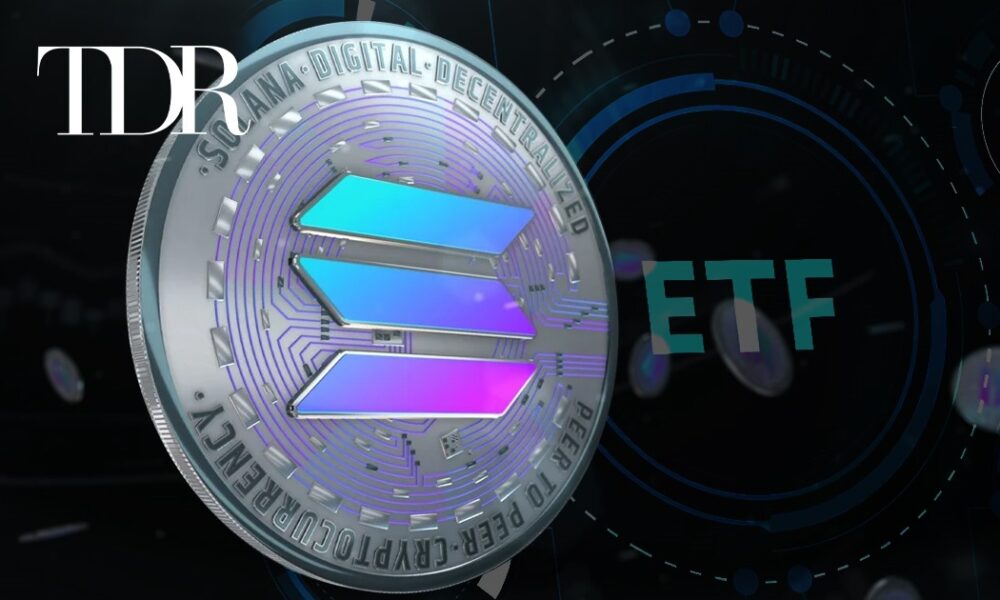Regulation
VanEck Solana ETF: Outlook and Regulatory Challenges

The four key points of the TDR regarding the VanEck filing for a Solana ETF and its prospects and challenges:
- What Happened: VanEck filed for the Solana ETF (SOL), causing the price of Solana to rise 6%.
- History: Solana is a blockchain platform launched in March 2020, known for its high transaction speeds and low costs, gaining significant traction in the crypto market.
- Why it matters: The ETF filing signifies growing institutional interest in Solana, which could lead to increased investment and legitimacy for the cryptocurrency.
- What’s next: If approved, the Solana ETF could attract more investors and potentially further increase Solana’s market value.
VanEck has filed for a Solana ETF, the proposed Solana ETF aims to offer investors exposure to the SOL token, echoing similar developments in ETFs for bitcoin and ethereum. Market sentiment was positive on the news, with the price of the Solana token rising 6%. Matthew Sigel, head of digital asset research at VanEck, argues that SOL should be treated as a commodity rather than a security. This distinction is crucial because it could influence the Securities and Exchange Commission’s (SEC) decision on whether to approve the ETF.
VanEck is confident about the classification of the SOL token. “We believe the native token, SOL, functions similarly to other digital products such as bitcoin and ETH,” Matthew Sigel wrote on transaction and IT services on the blockchain,” reinforcing the argument that SOL functions as a commodity. This perspective is essential in the ongoing debate over the regulatory treatment of cryptocurrencies.
Despite VanEck’s optimism, there are still significant hurdles to overcome. James Seyffart, an ETF analyst at Bloomberg Intelligence, expressed skepticism about the ETF’s near-term prospects.[My] “Early thoughts are that this only has a chance of launching in 2025 if we have a new administration in the White House and the SEC,” he noted on Seyffart highlights the regulatory uncertainty surrounding the approval process for cryptocurrency-based ETFs.
The Solana token’s features support VanEck’s commodity argument. Sigel noted, “SOL’s decentralized nature, high utility, and economic feasibility align with the characteristics of other established digital products.” He believes SOL could be valuable to “investors, builders, and entrepreneurs looking for alternatives to duopoly app stores.” This statement underscores SOL’s broad potential applications and appeal beyond its use as a digital currency.
Mert Mumtaz, Solana developer and co-founder of Helius, defended Solana’s decentralization, addressing a common criticism. “People will say that Ethereum is more decentralized than Solana, and that’s true. But that doesn’t mean that Solana is centralized. By all observable metrics, Solana is in the top 1% of decentralized networks,” Mumtaz told The Block. His comments help position Solana as a strong, decentralized platform, reinforcing its product classification.
The broader cryptocurrency community remains divided on the likelihood of the ETF’s approval. The current regulatory environment under the Biden administration is considered difficult for new cryptocurrency products. However, Sigel’s detailed explanation of the utility of the SOL token strengthens the argument that it should be considered a commodity. “To me, SOL is obviously a product as a builder since i) you need it to prioritize transactions ii) get network bandwidth via a stake iii) allocate storage iv) pay network fees etc. ” added Mumtaz.
VanEck’s pursuit of a Solana ETF is contingent on the SEC’s decision on whether SOL is a commodity. The future of the Solana ETF remains uncertain and closely watched. If approved, the Solana ETF could attract more investors and potentially further increase Solana’s market value. Want to stay informed on cannabis, AI, small caps and crypto? Subscribe to our daily Baked in newsletter!
